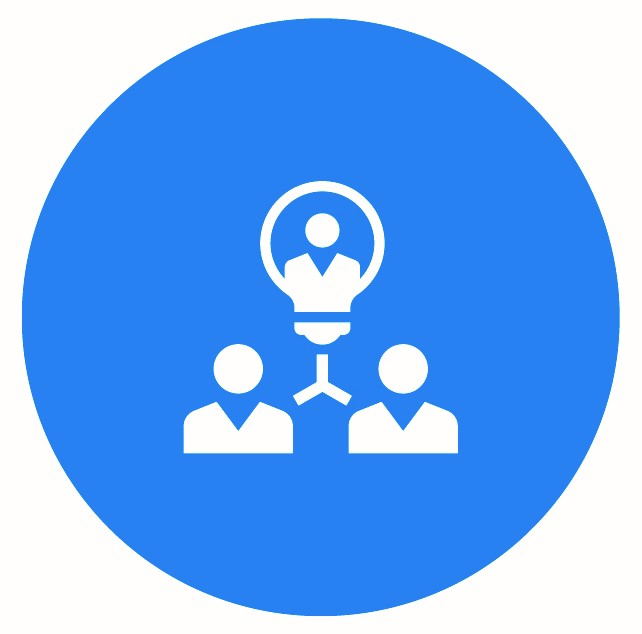Living with Psychosis
The treatment of your mental illness is not just something that you hand over to professionals during regular appointments. You can take the primary role in your recovery by developing the healthy living habits that manage your illness and allow you to enjoy a full life. These include:
- Exercising frequently
- Eating well (see Exploring Food and Mood)
- Avoiding alcohol and substance use
- Socializing regularly
- Managing stress
- Getting enough sleep.
For more details about these tips, visit Self-Care for Psychosis.
References Campus Mindworks. (n.d.). Self Care. Retrieved from https://campusmindworks.org/help-yourself/self-care/
Looking for more tips/recommendations? See the Dealing with Psychosis Toolkit.
Local Support Groups
- University of Michigan Depression Center, Program for Risk Evaluation and Prevention Clinic- The PREP clinic evaluates individuals who may be at-risk of developing psychosis (attenuated psychosis syndrome) and those who have experienced their first episode of psychosis, and offer recommendations based on presentation.
- First Episode Psychosis clinics in Michigan- Various clinics in Michigan provide evaluation and treatment for individuals experiencing symptoms of psychosis.
- Washtenaw County Community mental Health- Washtenaw County Community Mental Health (WCCMH) provides mental health services for adults suffering from severe mental illness, children with a severe emotional disturbance, and individuals with developmental disability.
- St. Joseph’s Mercy Hospital Ann Arbor- St. Joseph Mercy Ann Arbor is a teaching hospital which provides various clinical services including behavioral and psychiatric services.
- UM Multifamily Group for Psychosis – Multifamily Group for Psychosis is a problem solving group, where individuals and their family members can discuss ways to overcome challenges faced due to psychosis and related concerns. For more information, visit the PREP Clinical Care page.
- NAMI Peer-to-Peer - NAMI Peer-to-Peer is a unique, experiential learning program for people living with a mental illness who are interested in establishing and maintaining their wellness and recovery.
- NAMI Young Adults Support Group – NAMI young adults support group is open to anyone up to age 30 with a mental illness diagnosis. No registration required.
- NAMI Family-2-Family Educational Program - Family 2 Family is a 12-week program that helps family members with an ill loved-ones, offered by National Alliance for the Mentally Ill (NAMI), the University of Michigan, Community Support and Treatment Services (CSTS), the local Community Mental Health agency, and the Veterans Hospital of Ann Arbor.
- Hearing Voices Network – Ann Arbor Branch - Hearing Voices Network offers information, support and understanding to people who hear voices and those who support them.
Online Support Programs
- StrengthofUs.org - An online social community for teens and young adults living with mental illness
- NAMI online groups
- Hearing Voices Network - Hearing Voices Network offers information, support and understanding to people who hear voices and those who support them.
- Students with Schizophrenia - Students with schizophrenia is a non-profit organization that focuses on empowering college students with schizophrenia and their families through support, outreach and services.
- NAMI FEP Learning community- Information about an array of recovery-oriented specialty care programs, such as community outreach, family support and education, and peer support.
- Strong Minds 365- Online community that provides information, critical resources and individual anecdotes related to psychosis.
- Schizophrenia and related Disorders Alliance of America (SARDAA)- SARDAA offers information, support, and awareness of schizophrenia and psychosis disorders.
- Voice collective- Provides support and help for young people experiencing unusual sensory experiences such as hearing voices or seeing things that are not there.
- OnTrackNY- A New-York based organization that provides support, help and treatment for young adults having unusual thoughts, behaviors and sensory experiences.
- TedTalk (Eleanor Longden)- Eleanor Longden shares about her struggles dealing with auditory hallucination and her path to recovery.
- Rufus May (blog)- Rufus May covers topics related to new research, psychosis and schizophrenia, and mindfulness habits that promote mental wellbeing.
Research/Treatment Programs in Other Areas
- North American Prodrome Longitudinal Study (NAPLS) – multi-sites
- RA1SE Early Treatment Program – multi-sites
- Specialized Treatment Early in Psychosis (STEP) – Connecticut
- The Aware Center – Maine
- A list of Early Diagnosis & Treatment Centers for Psychosis & Schizophrenia, compiled by Schizophrenia.com
- Brain and Behavior Research Foundation (multi-sites)- Non-profit mental health agency that is committed to research related to mental health ailments. Website has a specific section related to research on schizophrenia.
- Clinicaltrials.gov – database of clinical trials available.
Education, Information, & News
- Marijuana Use & Early Psychosis. Join the Michigan Medicine Department of Psychiatry’s Alyssa Smith, LLP, and Jonathan Morrow, M.D., Ph.D., for a live Q&A examining the potential links between heavy marijuana use and the onset of early psychosis.
- Schizophrenia, A detailed booklet that describes symptoms, causes, and treatments, with information on getting help and coping, created by National Institute of Mental Health (NIMH)
- About the First Episodes of Psychosis, NAMI
- Which Way Madness Lies: Can Psychosis be Prevented? by Rachel Aviv
- Rethinking Schizophrenia, by Thomas R. Insel, M.D.
- Recent Science News about Schizophrenia, NIMH
- Regulating Glutamate May Help Early Detection of Schizophrenia, Study Finds, NAMI
- Scientists Can Predict Psychotic Illness in up to 80 Percent of High-Risk Youth, NIMH
- Cognitive Behavioral Therapy (CBT) for Schizophrenia. An In-depth Interview with Experts, Schizophrenia.com
- Castles in the Air: Making and Inhabiting a different reality. Professor Paul Fletcher discusses the nature of psychosis through his experience working with patients diagnosed with psychosis.
- Catching psychosis early (pdf). The article discusses the importance of early intervention in treating individuals with psychosis disorder through a coordinated combination of intervention treatment.
- Scientists are learning to predict psychosis years in advance and possibly prevent it (pdf). An article that discusses the importance of early identification of the behavioral and biological patterns of individuals at risk of having psychosis later in their life.
- Getting Help early (pdf)- A fact sheet that describe the prodromal symptoms of psychosis and the procedure that an individual can take if they associate themselves with these symptoms.
- Talk Therapy found to ease schizophrenia (pdf)- The article discusses the advantage of combined therapy which combines low-dose antipsychotics and talk therapy in treating patients with first episode psychosis.
- Promoting Recovery from First Episode Psychosis (pdf): A Guide for Families (2009) by Sabrina Baker and Lisa Martens
- Schizophrenia.com - Schizophrenia.com is a leading community dedicated to providing high quality information, support and education to the family members, caregivers and individuals whose lives have been impacted by schizophrenia.
- Substance Abuse and Mental Health Services Administration (SAMHSA) - SAMHSA is the agency within Department of Health and Human Services that leads public health efforts to advance the behavioral health of the nation. SAMHSA's mission is to reduce the impact of substance abuse and mental illness on America's communities.
- American Academy of Child & Adolescent Psychiatry - AACAP is a membership-based non-profit organization, composed of over 8,600 child and adolescent psychiatrists and other interested physicians.
- Early assessment and support alliance- Online national resource dedicated to providing education about psychosis and information about treatment providers across the nation.
- National Association of State Mental Health Program Directors (NAMSMHPD)- Online national resource that provides information, research and evidence-based interventions on psychiatric illnesses. There is a specific section dedicated to information related to psychosis.
- Kings College London, Institute of Psychiatry- Online courses about first episode psychosis and early psychosis that families can take for free.
- National Institute for Mental Health(NIH):
- Schizophrenia: General overview of schizophrenia including the symptoms, risk factors, and treatments for schizophrenic disorder.
- Recovery After an Initial Schizophrenic Episode and Coordinated Specialty Care- Focuses on treatment programs for individuals recovering from first episode psychosis.
- First episode psychosis- A fact sheet about psychosis including the treatments available for first episode psychosis.
- Mental Health America- Non-profit agency dedicated to addressing and improving the needs of individuals with mental health illnesses as well as providing information and resources related to mental disorders.
- National Alliance on Mental Illness (NAMI):
- Schizophrenia- Provides a general overview regarding schizophrenia, the treatments available and the support system that can be provided towards individuals diagnosed with schizophrenia.
Advocacy
- NAMI Child and Adolescent Action Center
- Ted Talk (Elyn Saks)- Elyn Saks speaks about her experience living with schizophrenia and how this had led her to her advocacy work.
Books
- Back to life, Back to Normality: Volume 2: CBT Informed Recovery for Families with Relatives with Schizophrenia and other Psychoses Kindle edition (2018) by Douglas Turkington and Helen M. Spencer.
- Brave New Brain: Conquering Mental Illness in the Era of Genome (2004) by Nancy Andreason.
- Tell me I’m Here: One’s family experience of schizophrenia (1992) by Anne Deveson.
- Beyond Schizophrenia: Living and working with a serious mental illness (2016) by Marjorie L. Baldwin.
- Understanding schizophrenia: A Practical Guide for Patients, Families, and Health Care Professionals (2015) by Ravinder Reddy and Matcheri S. Keshavan.
- The Center Cannot Hold: My journey through madness (2007) by Elyn Saks.
- The First Episode of Psychosis, A Guide for Patients and Their Families (2009) by Michael T. Compton and Beth Broussard.
- The Collected Schizophrenias (2019) by Esme Weijun Wang.
- The Memory Place, a Memoir (2011) by Mira Bartok.
- Conquering schizophrenia: A father, his son, and medical breakthrough (1998) by Peter Wyden.
- I am Not Sick, I Don’t Need Help: How to Help Someone with Mental Illness Accept Treatment (2010) by Xavier Amador
- Surviving Schizophrenia: A Manual for Families, Patients, and Providers, 6th ed. (2013) by E. Fuller Torrey
- The Complete Family Guide to Schizophrenia: Helping Your Loved One Get the Most Out of Life (2006) by Kim Mueser and Susan Gingerich
- Promoting Recovery from First Episode Psychosis: A Guide for Families (2009) by Sabrina Baker and Lisa Martens
- The First Episode of Psychosis: A Guide for Patients and Their Families (2009) by Michael T. Compton and Beth Broussard
- If Your Adolescent Has Schizophrenia: An Essential Resource for Parents (Adolescent Mental Health Initiative) (2006) by Raquel E. Gur and Ann Braden Johnson
- How to Live with a Mentally Ill Person: A Handbook of Metally Ill Strategies (1996) by Christine Adamec
- Getting Your Life Back Together When You Have Schizophrenia (2002) by Roberta Temes
- Schizophrenia Revealed: From Neurons to Social Interactions (2003) by Michael Foster Green
- Social Skills Training for Schizophrenia: A Step-by-Step Guide (1997) by Alan S. Bellack, Kim T. Mueser, Susan Gingerich, and Julie Agresta
- Diagnosis: Schizophrenia (2002) by Rachel Miller and Susan E. Mason
- Divided Minds: Twin Sisters and Their Journey Through Schizophrenia (2005) by Pamela Spiro Wagner and Carolyn S. Spiro
- Recovered, Not Cured: A Journey Through Schizophrenia (2005) by Richard McLean
- Room For J: A Family Struggles With Schizophrenia (2004) by Daniel S. Hanson
- Mad House: Growing Up in the Shadow of Mentally Ill Siblings (1998) by Clea Simon
- A Guide to Special Education Advocacy: What Parents, Clinicians and Advocates Need to Know (2009) by Matthew Cohen
- Crazy: A Father's Search Through America's Mental Health Madness (2006) by Pete Earley








